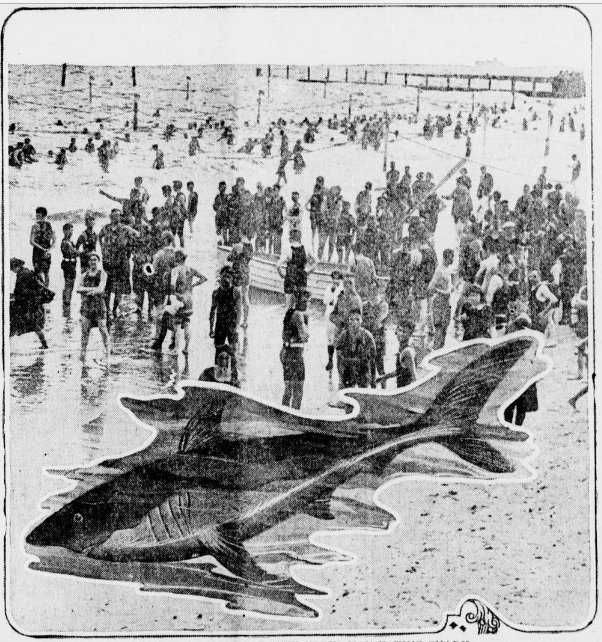100 Years ago the newspaper "Celina Democrat" wrote about trained
war dogs who had several important positions in the French Army.
For
example they were used to save wounded soldiers or to inform about
dangerous hidden enemies. Many of this examples and stories have been
collected in this interesting article:
Trained animals of the French army discover the wounded and even
capture German dogs as prisoners. Many of them have been given great
military honors.
The dogs of the French army are a force to be reckoned with. They are
a really necessary cog in the big army machine. They have distinguished
themselves in Argonne, on the Somme, on the Yser, in the Vosges. They
have contributed appreciably to divers local successes. They have saved
the lives of thousands of soldiers by their Intelligence and devotion,
by their courage and address. They have given their limbs, they have
given their health, they have given their lives. They have been cited on
the rosters of their companies, their battalions, their regiments.
They have been decorated. Their virtues have been celebrated by the
cinema, by the newspapers and Illustrated magazines and by the novel.
Festivals have been held for the benefit of their hospitals and
convalescent homes. Their delegates were enthusiastically cheered at the
Palace of the Trocadero by an audience of over 6.000 persons (Including
many wounded soldiers from the military hospitals) on the occasion of
the last annual meeting of the S. P. A. (Societe Protectrice des
Animaux, corresponding to our S. I. C. A.). And a committee has been
formed (at the Instigation of their two-footed comrades-in-arms) for the
erection of a monument in their honor.
Saviors of the Wounded
At the moment of the mobilization, 150 dogs, specially trained to
rescue the wounded, were put at the disposition of the sanitary
department of the Army of the Societe Nationnae du Chien Sanitaire.
After a short stay at Longchamp, they were sent to the front, where they
conducted themselves, on the whole, exceedingly well. "Pic" was brought
down by a German bullet in Argonne. "Toby," alias "Crapouillot," died
from a shell wound received at Vie-sur-Tourbe. "Kaiser","Kronprinz" and
"Francois-Joseph", names given in derision, because offancied
resemblance to the sovereigns of the adversaries served zealously and
fell upon the field of honor. In 1915, mainly on the Initiative of the
S. P. A. and the Anti-Vivisection league, some three hundred more
thoroughly trained dogs were turned over to the sanitary department, and
now not hundreds but thousands are succoring the wounded between
Nieuport and Alsace.
"Prince," a superb Alsatian wolf, the first dog to have his coat dyed
in the interests of invisibility, and still in the service, saved five
wounded men in a single day at Vauquois. "Pax," blind and paralyzed and
"Invalided" in due form because of these Infirmities contracted in the
service, has the rescue of more than two hundred wounded to his credit.
On the other hand. "Cadet," efficient singly, but too Ill-tempered for
team work, has developed a specialty altogether his own, that of
"gathering in" the dogs of the enemy. When "Cadet" spies a Boche dog, he
pounces upon him, masters him, grips him by the tar and brings him to
the trench as prisoner.
The "sanitary dog" scours the battlefield in quest of the wounded.
When he discovers a suffering soldier he falls back on the brancardier
to whom he is attached and makes plain by his attitude that his services
are needed. At the outset he was taught to fetch to the brancardier a
kepi or a handkerchief. But the handkerchief of the soldier is very apt
to be in a tightly-buttoned pocket and he may have lost his kepi.
Furthermore the kepi has been replaced largely by the heavy helmet, and
it is next to Impossible for a dog to remove the latter, when it is held
on by a chin-strap, as it almost always is. So it has become customary
to have the dog fetch any object whatever (pipe, handkerchief, helmet,
briquet, tobacco pouch, car tridge box. bit of uniform), save a bandage,
which he is taught to scrupulously respect.
Surprising Canine Versatility
The "sanitary dogs," having been first in the field, thanks to the
antebellum preparedness efforts of the Soclete Nationnle du Chien
Sanitaire, and having long been the most numerous, have naturally
attracted the most attention; but all the four-footed pollus are not
rescuers of the wounded, Latterly, a goodly number have been trained for
functions which bring them into closer relations with the actual
combatants than with the disabled, and a special canine military service
has been organized by ministerial decree. Dogs now serve as sentinels,
as scouts, as dispatch bearers, and as revictuallers.
They are taught to wait patiently in solitary spots; to pay no
attention to the most deafening detonations; to wear a gas-mask; to
growl (without barking) at the slightest suspicious approach; to move
back nnd forth between widely separated points without being tempted by
irrelevant appeals enroute or being disconcerted by the obliteration of
landmarks due to the tramping or churning of the earth.
"I use only
French dogs," says a dog-training specialist, "for a very simple reason
that renders all other reasons, namely, that they are the best shepherd
dogs of La Beauce and of the Pyrenees, enterprising and hardy, excellent
pupils, on condition that you specialize them, that you demand of them
only what they have to give, that you do not exact from them, as from
the modern-style ladies' maid, housekeeping, piano-playing, sewing,
ironing, and the giving of English lessons.
The efficiency of the war dog depends upon two things, obedience and
scent. Do not expect from the best dog miracles of well-nigh human
intuition. If you do, you will be deceived. Refuse to believe that a war
dog will learn to send telephone messages by growling before a
telephone (as has been reported and even printed), or that he will run
to ring the alarm bell at the approach of asphyxiating gas."
Four-Footed Sentinels
"Fidele," a big yellow mastiff, who mounted guard regularly before
the porthole of a trench on the Yser, was shot in the head. He was
evacuated to a dog hospital. The surgeons succeeded to extracting the
bullet (which his master now wears as a charm on his watch-chain), and,
after a proper period of convalescence, he joyously resumed his service
at the front. "Lion" sentinel with the th regiment of Colonial infantry,
signalled the proximity of a strong German patrol whose mission it was
to capture a post some two hundred yards in advance of the French lines.
His alarm permitted the opening of a deadly infantry and artillery fire
which repulsed and decimated the patrol. Several prisoners were taken,
who declared that they would certainly have succeeded in their
enterprise had it not been for the warning given by the dog.
The Official Bulletin of July 19, 1910, contained this sentence: "An
attack directed by the enemy upon our out posts in the region of
Raschendael (Belgium) was checked by our fire." The failure of this raid
was due to a dog named "Fox." He was placed upon the roll of honor of
his regiment with this mention: "Fox, Serie F4, matricule 221 of the Kennel A, foiled an attempt of
the Germans to raid our first-line trenches. Profiting by a dark night
and a gale of wind, the enemy had succeeded in upproachlng our
barbed-wire barriers without being seen or heard by the sentinels. The
dog Fox of the Nineteenth company of the -th regiment of Infantry, who
was mounting guard at the extremity of the trench, alarmed the post
twice and permitted us to receive the enemy with a shower of grenades.
Thanks to Fox's alarm, the surprise resulted in a complete fiasco."
"Loustic" had no sooner familiarized himself with the trenches of the
Infantry than he made a discover of the first Importance. While on watch
duty with his master he suddenly obliqued to the right and gave
unmistakable signs of perturbation.
"There's something over yonder," said the master to his comrades.
"Nonsense! Your pup's dreaming." "But I tell you that If none of our men
are over there at the right, there are Boches there." The dog is led in
the opposite direction to test him. He runs back to his point of
observation and continues to manifest the same disquieting symptoms. "It
may be that he smells a Boche outpost," observed his master. The men,
Impressed at last, communicate the observation to the officer in
command. "X-- says that his dog 'Loustic' has discovered a Boche
outpost." "The one we are after?" "Yes." "That would be extraordinary
indeed." The captain is skeptical; nevertheless he orders several
rockets to be setoff. And there, sure enough, in the direction the dog
so obstinately indicated, pop up the heads of three superb Bodies, who
fancied themselves secure against discovery. That passes me," murmured
the captain. "In 20O minutes this cur has discovered a post we have been
hunting two months for."
Four-Footed Scouts
In a northern sector, between the French and German trendies, fully
200 yards from the former and not more than 20 yards from the latter,
was a farmhouse which was suspected concealing machine guns and an
observation post, despite the fact that no signs of life were visible.
The poilus in one of the French trenches lay their heads together: "It's
absolutely necessary to know what there is in that house." "You're
right. But It's no easy matter. We shall surely be shot If we go near
it." "But if it is empty?" "That would be a lark. We'll find out. We'll
take Tapillon' along with us." And one dark night four men, accompanied
by Papillon, set forth. They advanced by bound?, with infinite
precaution, making ten-minute halts between the bounds and unrolling a
telephone wire as they progressed. When they were close to the house,
they halted for three-quarters of an hour, in order to give Papillon
time to familiarize himself with the premises and to reconnoiter them
thoroughly.
He displayed no signs of agitution save when he was turned toward the
trenches of the enemy. The house was certainly empty. The party entered
and made a thorough inspection. They returned under Papillon's guidance
several times, making daylight observations which rendered possible a
successful attack. And Papillon was cited on the roll of honor of the
battalion. In the spy-infected Vosges the scouting dogs have been
particularly useful in detecting the civilian traitors who are In the
habit of observing the movements of the troops from behind the forest
trees. The scout "Nestor," besides rendering numerous services of this
sort in the region, also distinguished himself particularly at Bandkopf
by fulling back upon a patrol, in advance of which he was reconnoitering
and announcing in unmistakable language a totally unsuspected menace of
the enemy.
Would you like to support me?
You can send a tip to my Bitcoin wallet:
1NL5a2Ao37sLusx7yoknGU6HAt31ztCpbF













